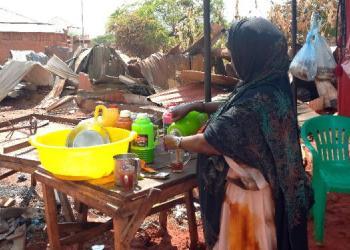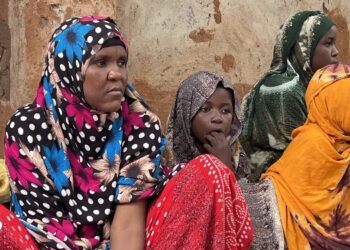(ERGO) – For the first time in decades, over 20 blind and visually-impaired students are expected to sit for the Somali national secondary examinations in May.
According to Ahmed Hassan Yusuf, the permanent secretary at the Somali federal government’s ministry of education in Mogadishu said preparation for the exams is underway, with provision being made for the visually impaired.
“Plans to set special exams for the visually handicapped are in hand. The ministry is also planning to give a quota of scholarships offered by state partners to visually-impaired students,” he said.
In Mogadishu, there are no special secondary schools so few students with visual impairment are able to proceed beyond primary school.
Ahmed Hassan Dige, 25, lost his sight when he was young after being hit on the head. His family was living in Godey town in Ethiopia. Ahmed came to Mogadishu in 2013 to pursue his education.
Ahmed and 26 others, who have been studying in the normal school system for the last four years, are candidates in this year’s national exams.
“The ministry and the blind or visually impaired students jointly agreed to sit exams and the ministry will arrange invigilators who will be in charge of the monitoring the exams,” said Dige.
Ahmed told Radio Ergo that he studied at a secondary school with no special classes for blind students.
During last year’s national exams, several blind students were refused entry by the ministry citing lack of Braille equipment, which is expensive and not available in the local market.
Among those students turned away is Fartun Ahmed Elmi, 21, who now studies political Science at Jobkey University in Mogadishu.
Fartun completed Hayansecondary school last year. She used to submit her answers and other work by dictation.
According to Fartun, sitting the exams set by the Somali government will help blind and visually impaired students to pursue further education abroad and to access state scholarships offered by Turkey, India, and Sudan.
“I tried my luck last year but was not successful, so I joined a private university where I still study using dictation methods just as I did in secondary school,” she said.











